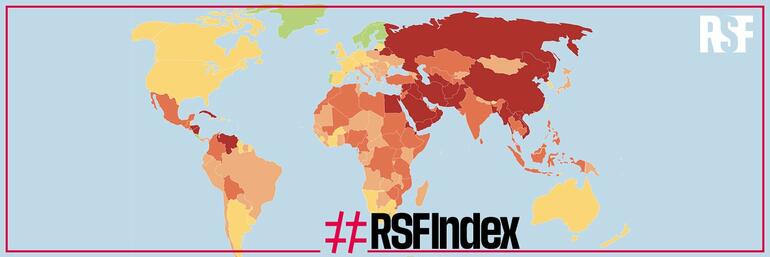
The 20th edition of the World Press Freedom Index shows a two-fold rise in polarisation: on the one side, media polarisation is increasingly fuelling divisions within countries; on the other, it is escalating at the international level. Polarisation is growing as a result of the spread of opinion media and disinformation, which is amplified by social media. As an effect, internal social divisions and political tensions are growing in countries such as the United States and France. In the so-called “illiberal democracies”, the suppression of independent media is contributing to polarisation. An example comes from Poland, where the authorities’ control over the public broadcasting is now consolidated.
For this edition, RSF adopted a new methodology in which press freedom is defined as “the effective possibility for journalists, as individuals and as groups, to select, produce and disseminate news and information in the public interest, independently from political, economic, legal and social interference, and without threats to their physical and mental safety”.
Looking at the ranking, Norway, Denmark and Sweden occupy the first three positions. In the EU, Estonia and Lithuania are now among the top ten. Moldova and Bulgaria have strongly improved their ranking due to government changes, although the oligarchical control of the media is still strong. Greece has replaced Bulgaria in last place in Europe.
The index highlights three main trends in Europe: the return of journalist murders (Giorgios Karaivaz in Greece and Peter R. De Vries in the Netherlands); the rise in attacks, threats and insults during protests; the intensification of draconian laws against journalists in Slovenia, Poland, Hungary, Albania, and Greece.
RSF analyses also the situation in Eastern Europe after the Russian invasion. Beyond the human tragedy, the invasion is creating a steady rise in the levels of censorship and disinformation across the region.
Tags: Media freedom Media pluralism Safety of journalists
